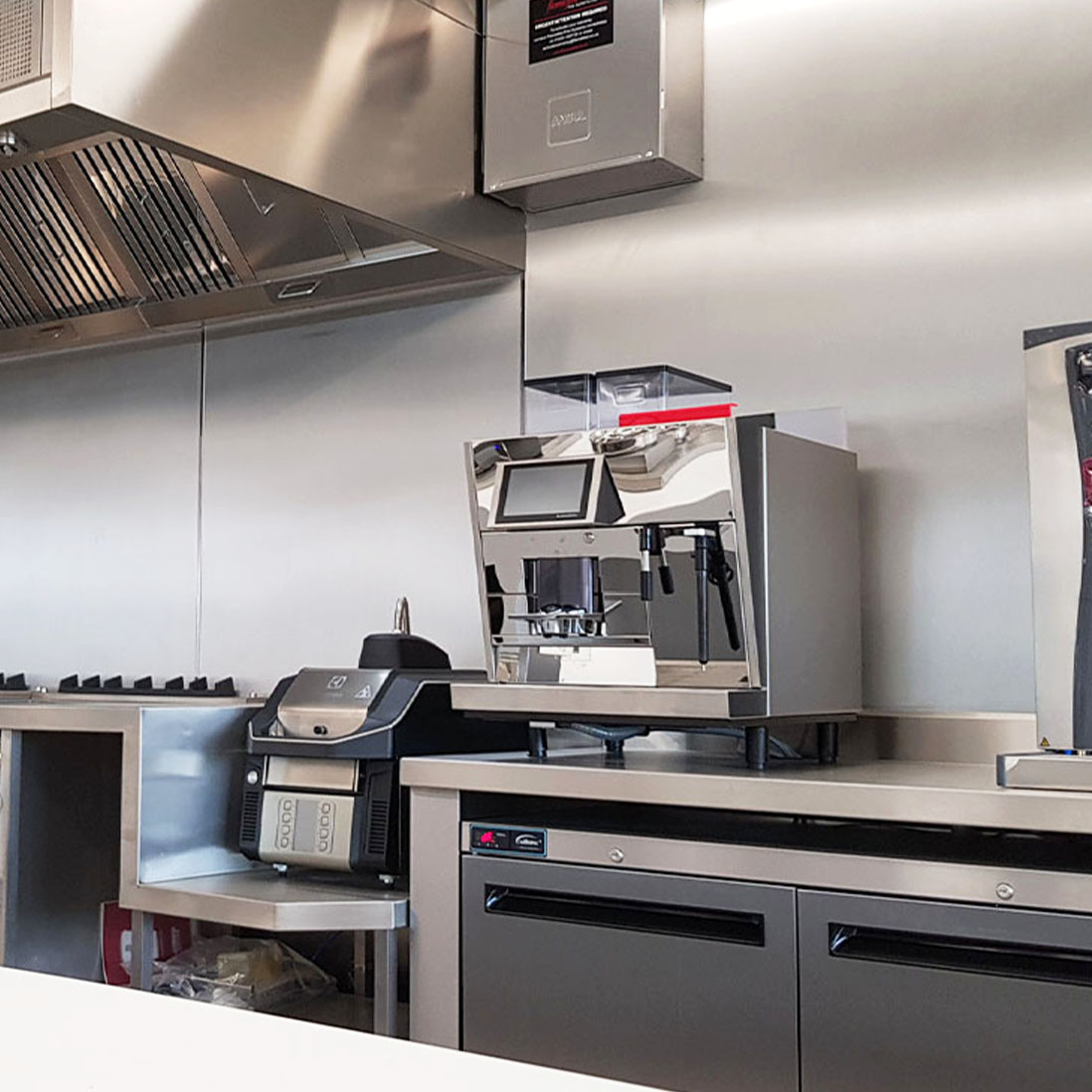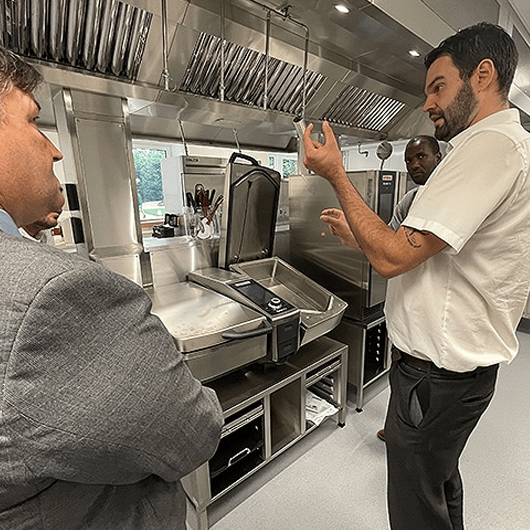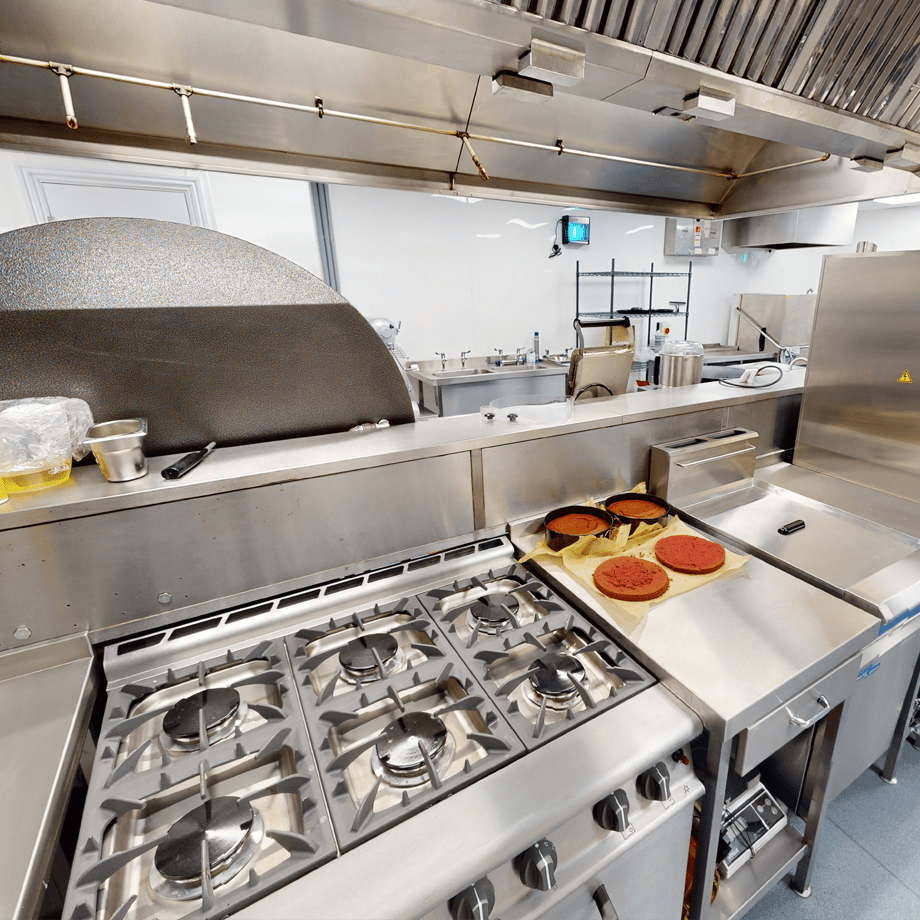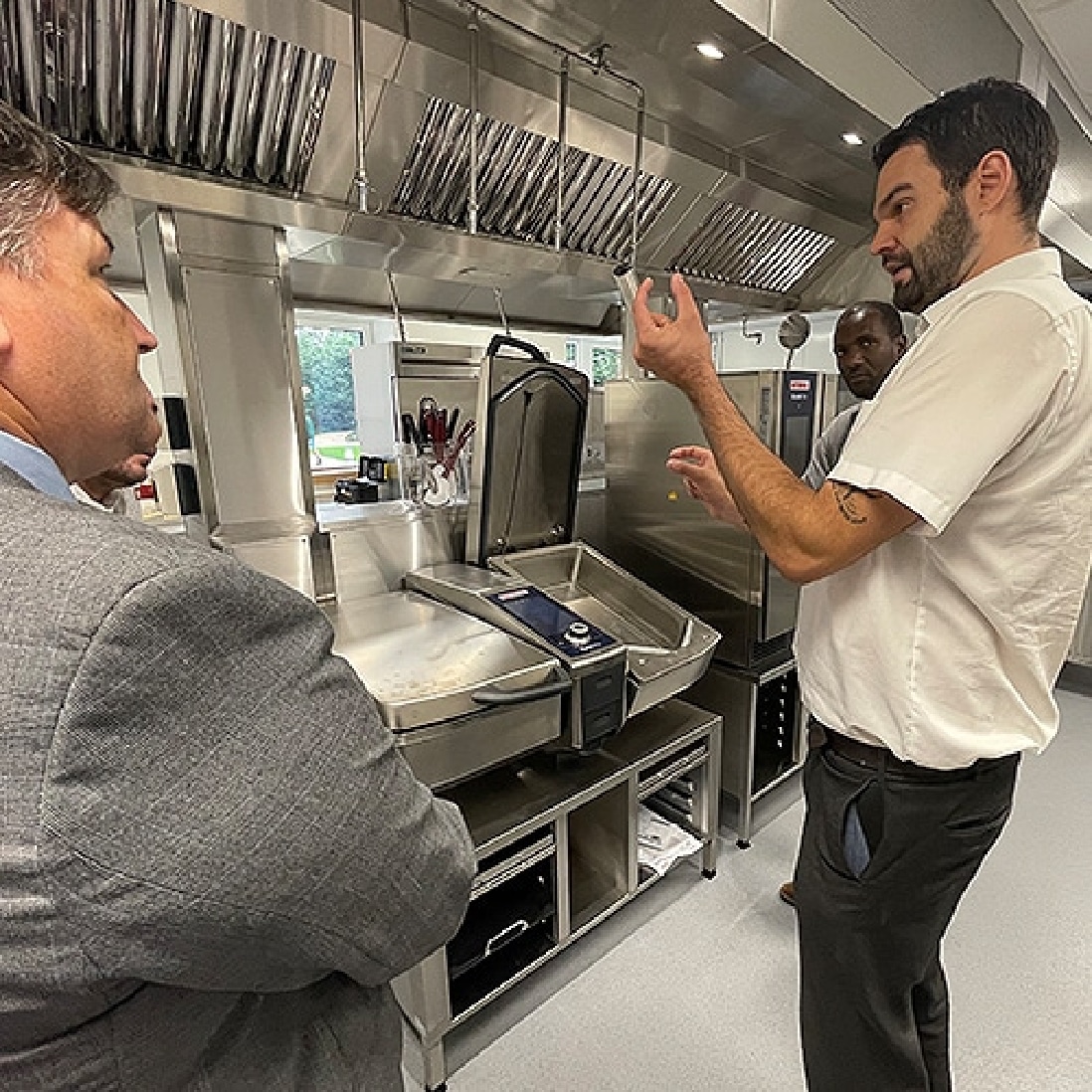Minimise Downtime During Commercial Kitchen Installations

Contents
- 1 Effective Planning
- 2 Schedule During Off-Peak Times
- 3 Choose the Right Equipment Supplier
- 4 Prioritise Pre-Installation Preparation
- 5 Utilise Temporary Kitchen Solutions
- 6 Opt for Experienced Installers
- 7 Communicate with Your Team
- 8 Test and Train After Installation
- 9 Conclusion
- 10 Get in Touch With Our Experts Today
When it comes to commercial kitchen installation, one of the biggest concerns for businesses is downtime. Any delay in kitchen installation can disrupt daily operations, leading to a loss of revenue and productivity. But with the right approach, downtime can be significantly reduced or even eliminated.
In this blog, we’ll explore practical ways to ensure a smooth and timely commercial kitchen installation that minimises your business’s downtime.
Effective Planning
Effective planning is the foundation of a smooth commercial kitchen installation. Start by setting realistic timelines and understanding the scope of the work that is being carried out. Communication between your business and the installers is key to avoiding surprises.
When working with a professional commercial kitchen installation company, they should help you outline a comprehensive plan, including timeframes, equipment deliveries, and potential delays. The clearer your expectations, the easier it will be to avoid costly delays.

Schedule During Off-Peak Times
One of the simplest ways to minimise downtime is to schedule your commercial kitchen installation during off-peak hours or periods of low business activity. For example, if you run a seasonal restaurant, planning the installation during the off-season can reduce the impact on your operations.
If an installation during normal business hours is unavoidable, consider implementing a phased approach. This allows parts of your kitchen to remain operational while others are being installed or updated.

Choose the Right Equipment Supplier
A seamless commercial kitchen installation is only possible when the equipment arrives on time and in perfect condition. Choosing a reliable supplier ensures that you don’t face delays due to late deliveries or faulty equipment. Work with suppliers who have a proven track record in the industry and who can guarantee timely delivery of quality equipment.
Prioritise Pre-Installation Preparation
Before the installation begins, make sure everything is ready. Ensure the site is cleared and any necessary building work, plumbing, or electrical work is complete. Pre-installation preparation can prevent delays once the installation team arrives.
A site survey is a great way to identify any potential issues before they become a problem. This allows installers to assess the space, evaluate the existing infrastructure, and make sure everything is in place for a smooth installation.
Utilise Temporary Kitchen Solutions
For businesses that cannot afford any downtime, utilising temporary kitchen solutions can be a lifesaver. Portable kitchen units can be set up to keep your operation running smoothly during installation. This may be especially important for hospitals, schools, or large food service venues where interruptions are simply not an option.
Temporary kitchen facilities can help you maintain service while the installation is taking place, ensuring minimal disruption to your business.
Opt for Experienced Installers
Experience matters when it comes to commercial kitchen installation. An experienced installation team knows how to handle complex jobs and adapt quickly to challenges, reducing the risk of delays.
Make sure you work with installers who are familiar with your specific type of kitchen and its equipment. Having the right expertise ensures that the job is done right the first time, saving you from unnecessary rework or troubleshooting.
Communicate with Your Team
During any commercial kitchen installation, it’s important to keep your team informed. By letting your staff know when the installation will take place and how it might affect their work, you can ensure they are prepared for any disruptions. Clear communication will help manage expectations and prevent any confusion during the process.

Test and Train After Installation
After the commercial kitchen installation is complete, don’t forget to test the equipment thoroughly before going back to full operations. This step is crucial to ensure everything is working properly and to identify any issues before they disrupt your service.
Additionally, providing proper training for your staff on the new equipment can prevent future problems. Well-trained staff are less likely to encounter operational hiccups, which could lead to more downtime.
Conclusion
Minimising downtime during a commercial kitchen installation requires careful planning, clear communication, and working with the right professionals. By following these steps, you can ensure your installation process is as efficient and seamless as possible, keeping your business running smoothly and without interruption.
With a focus on pre-planning, scheduling, and coordination, you can make sure your commercial kitchen installation doesn’t impact your operations more than necessary. Work with experienced installers and reliable suppliers to keep your project on track, and always test everything once installed to ensure smooth functionality.
For expert commercial kitchen installation, choose a team that understands the importance of minimising downtime for your business!

Get in Touch With Our Experts Today
At Inox, we are commercial bar and pub refrigeration experts. We understand that every pub has different requirements, and we can help you meet them. If you’d like more advice or information about how we can help, contact us today.

Share This: